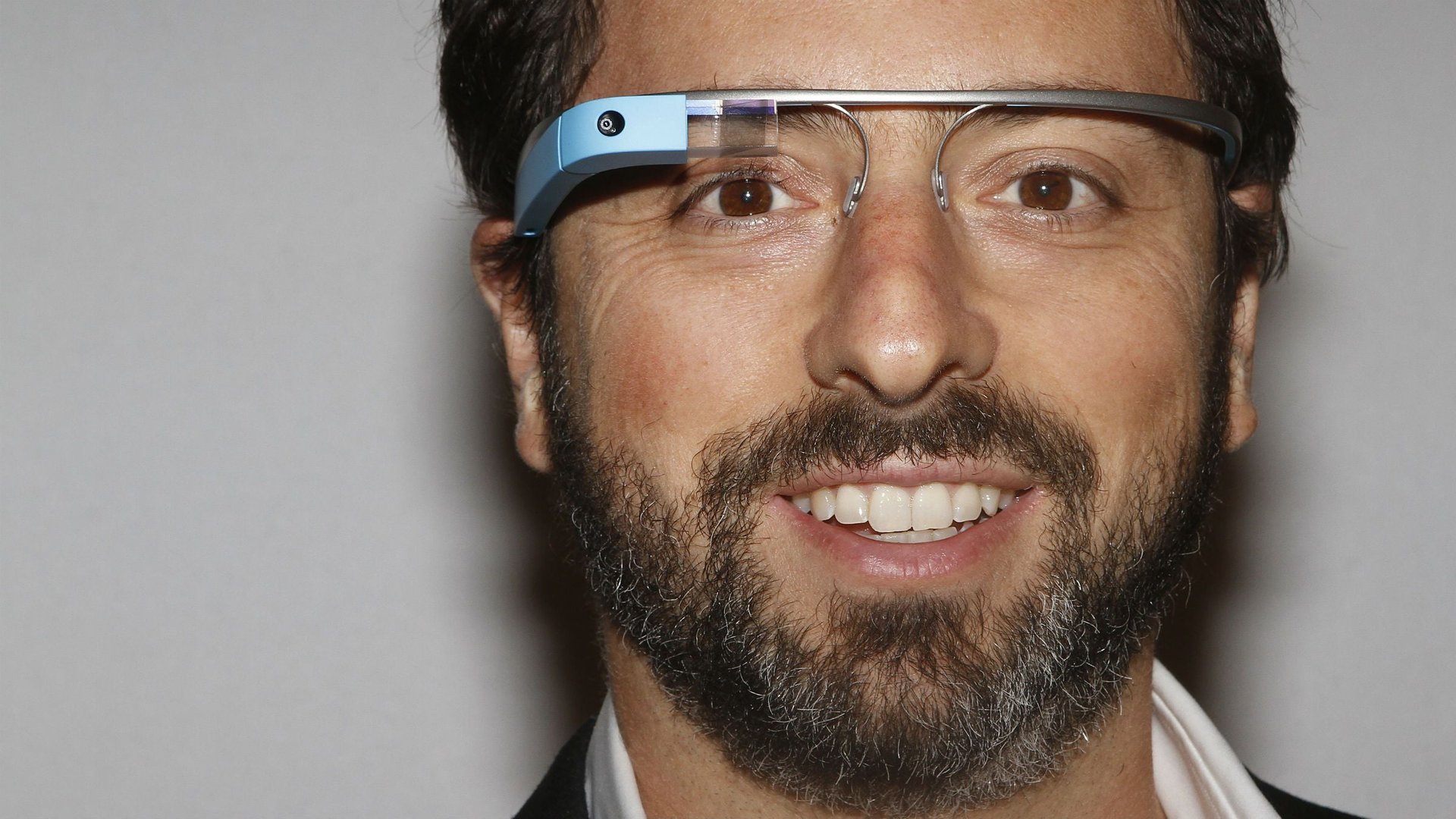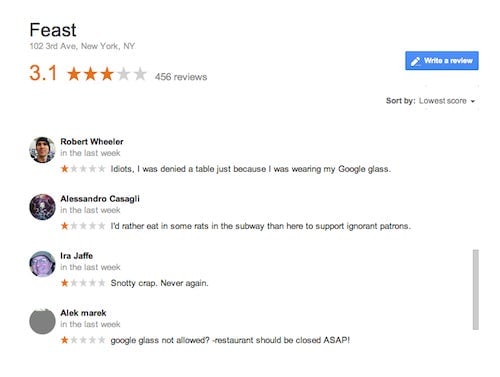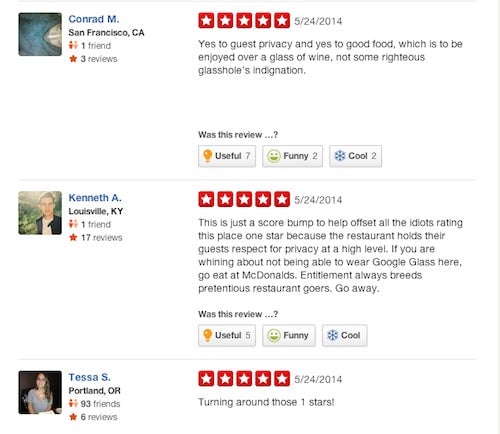A New York restaurant has become a flashpoint in our cultural struggle over Google Glass
In perhaps the lamest page from our “the way we live now” handbook, Feast—a restaurant whose $24 squid ink pappardelle symbolizes what befell New York’s once rough-and-tumble East Village—has become a flashpoint in the Google Glass battle.


In perhaps the lamest page from our “the way we live now” handbook, Feast—a restaurant whose $24 squid ink pappardelle symbolizes what befell New York’s once rough-and-tumble East Village—has become a flashpoint in the Google Glass battle.
At issue here is one key idea: Do we want to live in a world where people can wear devices on their faces that can record anything at anytime? As EVGrieve reports, when one woman was asked by Feast’s management to remove her Google Glass and refused, things got heated quickly. The woman, Katy Kasmai, wrote an account of her travails on Google+ (it has since been seen 1.7 million times):
For the first time ever this place, Feast, in #NYC just asked that I remove +Google Glass because customers have complained of privacy concerns in the past. Never has happened to me before in the one year I’ve had Glass. I left. #throughglass Feast
Then came the cascade of negative reviews of Feast on Google+, which as it’s been pointed out, is the very first search result for the restaurant. Many of the reviewers mentioned absolutely nothing about the food and/or submitted reviews from far away, mostly deriding the restaurant for its Google Glass policy.

But as the negative reviews came tumbling in, they were counterbalanced by a spate of positive reviews, not only on Google+, but also on Yelp.

At play here are several components of our digital struggle. There’s the already arbitrary and deleterious impact of online reviews on a business (that may or may not deserve it) mixed with an ideological schism over the extent to which we’re entitled to privacy and whether wearable technology like Google Glass violates that privacy.
As we noted earlier this year, Google laid out an etiquette guide for its Glass “explorers” to follow, specifically requesting that Glass users not be “Glassholes” by being “creepy” or “rude.” Of course, there’s nothing binding about that and stories of Google Glass wearers suffering assaults (but not thefts) speak to a broader discomfort with regard to the technology.
This kerfuffle doesn’t seem all that different than businesses like Hot Bird, a bar in Brooklyn that recently banned babies and young children. While safety factored into the bar’s decision, so did the wishes of the clientele. This was the same rationale given by Feast in explaining why it asked the Glass user to remove her device. Businesses thrive or die based on the wishes of its customers. Until attitudes change, restaurants like Feast will probably keep asking customers to stop making other customers uncomfortable, whether it’s Google Glass, being too drunk, or actually ordering the beet ravioli.
As Google Glass becomes more ubiquitous, we should expect more fights like this to erupt. And then, once we all have our Google Glass, this whole chapter will probably just become an old image of ourselves that was taken when we hoped no one was recording.